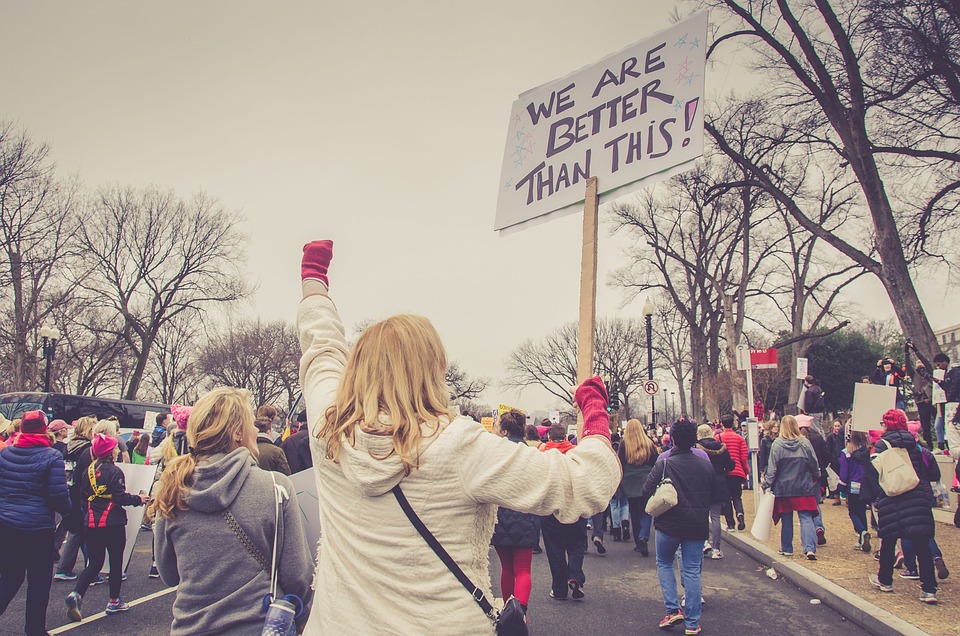
Singaporean Deputy Prime Minister Lawrence Wong cautioned against the possibility of disaster for the global economy with implications way beyond the United States and China, criticizing America for trying to restrict China’s development.
Addressing his audience at an event marking the 100th birthday of the late Singaporean independence leader Lee Kuan Yew, Wong stated that when it came to security, countries typically are cognizant of the collateral damage linked to using certain weapons. However, as the world did not have much past experience on the use of financial measures in bilateral quarrels — such as in the present U.S.-China competition — the “collateral damage” inflicted by their use was unknown. Furthermore, Wong asserted that such “collateral damage” would be “the biggest issue in the world.”
“The dynamic that’s now being created because of the US-China extreme competition will lead us down a path that will be disastrous for the global economy,” Wong said, elaborating that U.S. attempts to impede China’s development of advanced electronics were unlikely to “keep China down.”
“There will be a trade-off in terms of performance, in terms of power consumption, in terms of reliability — but you can design a workaround solution,” Wong said about the consequences of U.S. sanctions on China’s tech sector. “Yes, it will slow down China’s access to high-end capabilities to some extent, but it’s not going to keep China down forever.”
As the United States is focused on “extreme competition” with China, Singapore is worried about “what can go wrong and it is dynamic, because one country does something and the other country can retaliate,” said Wong.
Some of the measures Washington has relied upon to stem the progress of the Chinese tech industry include blacklisting key firms from U.S. markets, forbidding U.S. firms from investing in Chinese firms tied to the government or military, and coercing other nations to enforce like-minded measures, especially pertaining to 5G internet networks and exporting advanced microchips to Chinese firms.
When questioned by the dialogue moderator and CNN anchor Fareed Zakaria on the stance Singapore would take if Taiwan were to be invaded by mainland China, Wong said he did not want to be led to hypothetical scenarios, while highlighting Singapore’s “one-China” position.
Regarding his predictions on the outcome of the Russo-Ukrainian conflict, Wong stated that Singapore was “not monitoring this as closely because it’s not within our region,” but remained pessimistic about a settlement in the short-term.
Wong’s words come just days after Chinese Foreign Minister Wang Yi visited Singapore. During his visit, Wang slammed the United States as “the biggest destabilizing factor in the world.”
The United States, “out of its motive to maintain unipolar hegemony, is unwilling to see the development and revitalization of China and other emerging countries,” Wang told Singaporean Prime Minister Lee Hsien Loong during his visit.
“On the one hand, it condones and supports the Taiwan independence forces relying on the United States to seek independence, trying to cross China’s red lines,” Wang added.
“On the other hand, it tears away the pretense of fair competition and coerces other countries into unilateral protectionism against China. These perverse practices will only damage its own credibility, laying bare the fact that the United States has become the biggest destabilizing factor in the world.”
In the latest update in the Sino-U.S. rivalry, U.S. President Joe Biden signed an executive order banning new American investment in China in sensitive technologies such as computer chips, while official approval is necessary for other sectors.
During Wang’s August 11 visit, he and Singaporean officials also talked about their close economic ties, which have been enhanced even more in recent years with the ratification of the Regional Comprehensive Economic Partnership (RCEP) trade bloc and other similar deals. China is Singapore’s major trading partner, and ethnic Chinese comprise around 75 percent of Singapore’s population. Singapore’s Ministry of Foreign Affairs (MFA) said that the enhanced Sino-Singapore partnership mirrored the commitment by both sides to continually increase bilateral collaborations, as well as explore new cooperation in fields such as digital and “green” economies.
Nonetheless, Singapore also enjoys warm relations with the United States, particularly in the areas of trade and defense.
On the international stage, Singapore, as a highly connected trading hub between East and West, has been trying to balance its ties with both the United States and China, while maintaining a neutral stance.
Nevertheless, in recent years, China has been mounting pressure on Singapore to take a stance between the two great powers. On the ground in Singapore, many Singaporeans are more sympathetic toward Beijing than citizens of many other developed economies.
According to a June 2021 Pew Research Center report on global views of China and the United States among 17 advanced economies, a median of merely 27 percent of respondents had a positive view of China. On the contrary, about 64 percent of Singaporeans had a favorable impression on China, the highest among all countries surveyed. Such a result contrasts with only 10 percent of Japanese, 21 percent of Australians, and 22 percent of South Koreans.
Similarly, 49 percent of Singaporeans prioritize strong economic ties to China (against 33 percent who say that about the United States). Across the 17 economies, on average only 21 percent of respondents prioritized economic ties with China, versus 64 percent who valued such relations with the United States.
Besides Greece, Singapore was the only country in the survey where perceptions of China among the general population were more favorable than views of the United States, notwithstanding long standing close US-Singapore ties.
A senior U.S. official in 2019 wrote that Singapore is a nonallied partner of the United States that, for all purposes, functions like an ally. For instance, the 2004 U.S.-Singapore free trade agreement was also the first bilateral trade pact that Washington signed with any Asian country.
That being said, as an Asia-Pacific country caught in the fray between rising Sino-U.S. hostilities, Singapore is effectively torn between the two superpowers. Bilahari Kausikan, a retired Singaporean diplomat, said in 2019 that there was no “sweet spot” to keep both the Chinese and Americans “happy.”
Despite Kausikan’s comments, the Singapore government has been attempting to remain in the good books of both countries. For each advance toward the United States, it has made a similar move toward China. For example, after the 2019 extension of a 1990 Singaporean-U.S. memorandum of understanding that enables U.S. military access to the island’s air and naval bases and offers logistics support to U.S. personnel, aircraft, and naval vessels, Singapore and China also renewed their defense agreement, which included provisions for joint military exercises, a regular ministerial dialogue, a visiting forces agreement, and a bilateral hotline.





















































